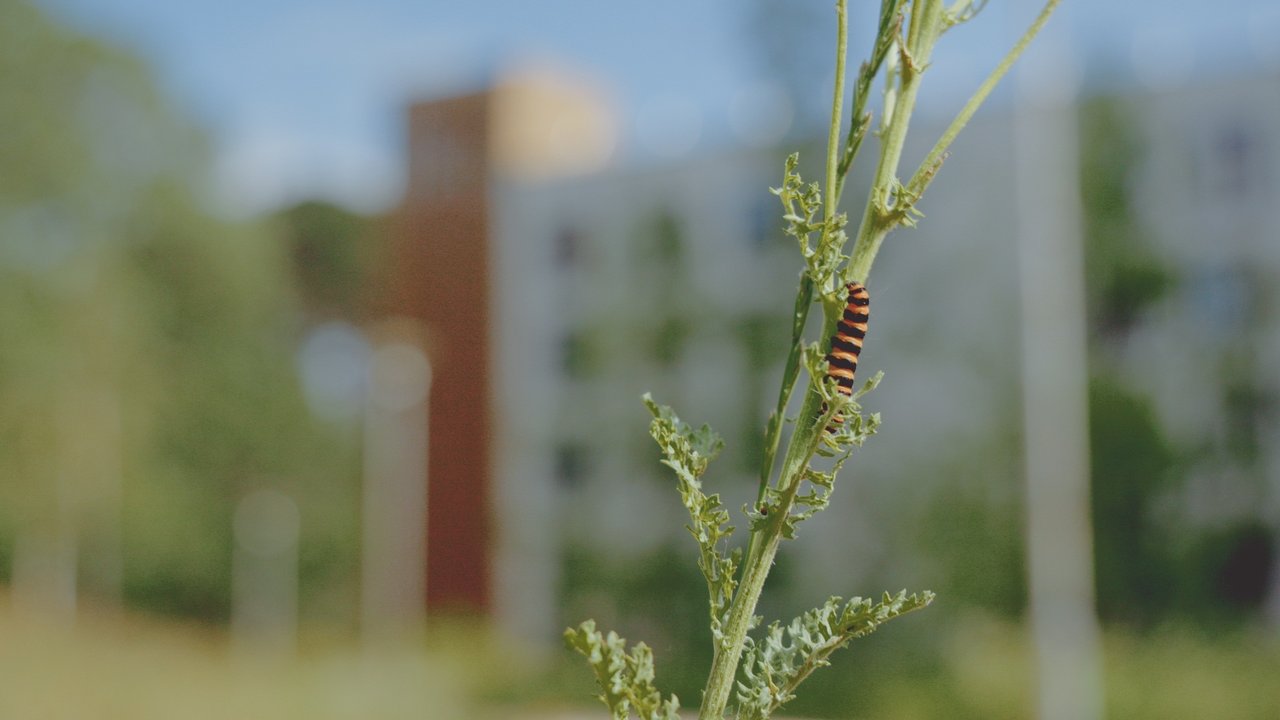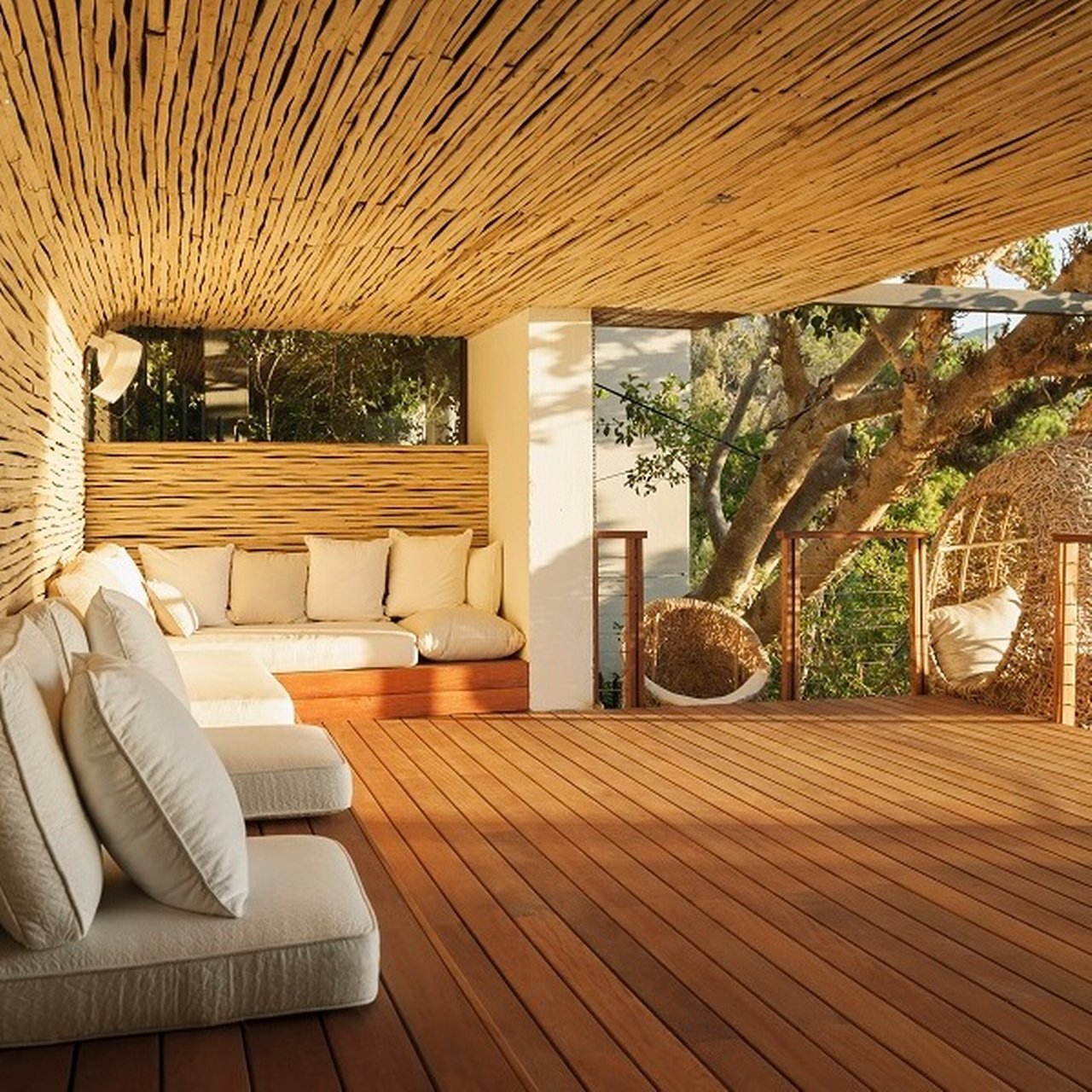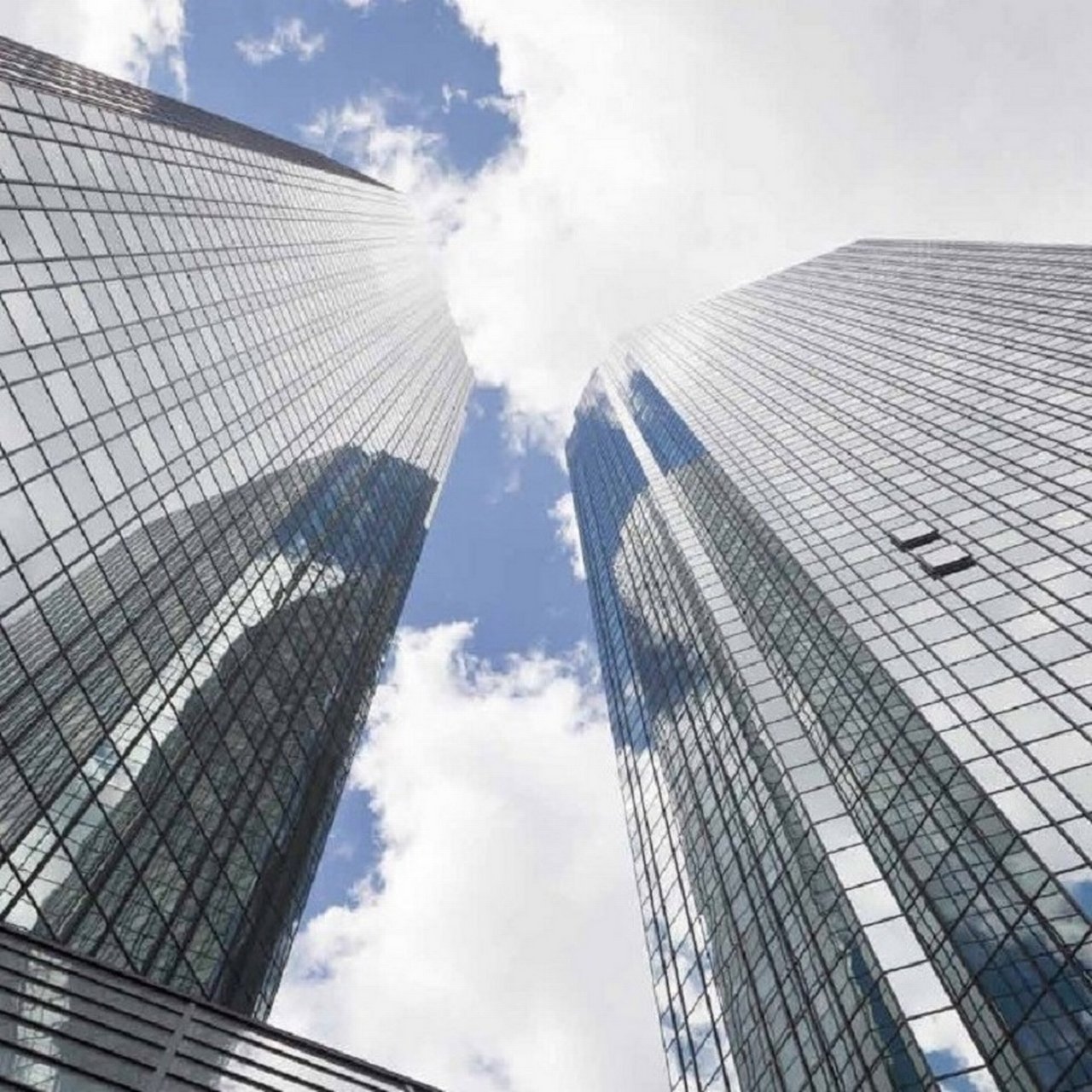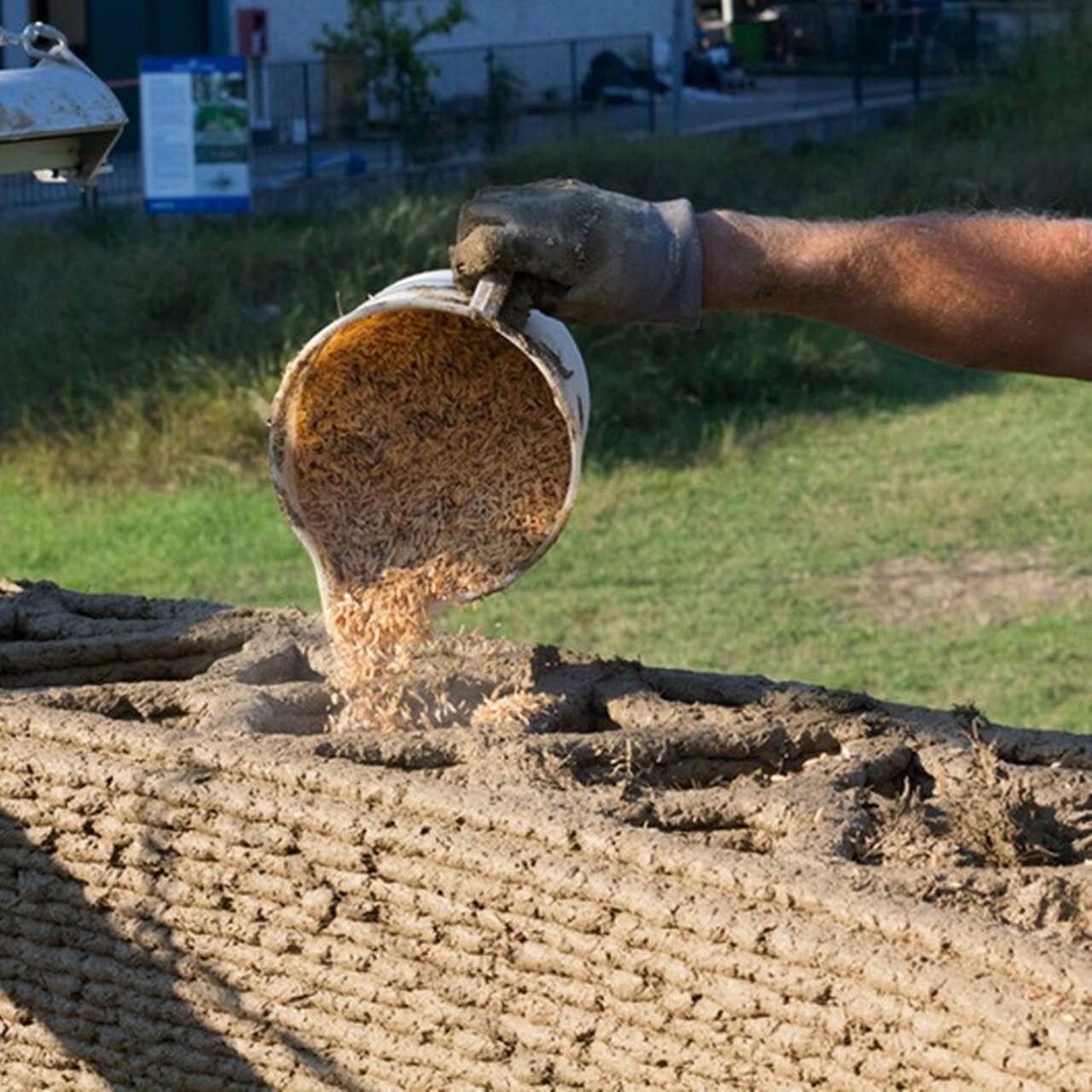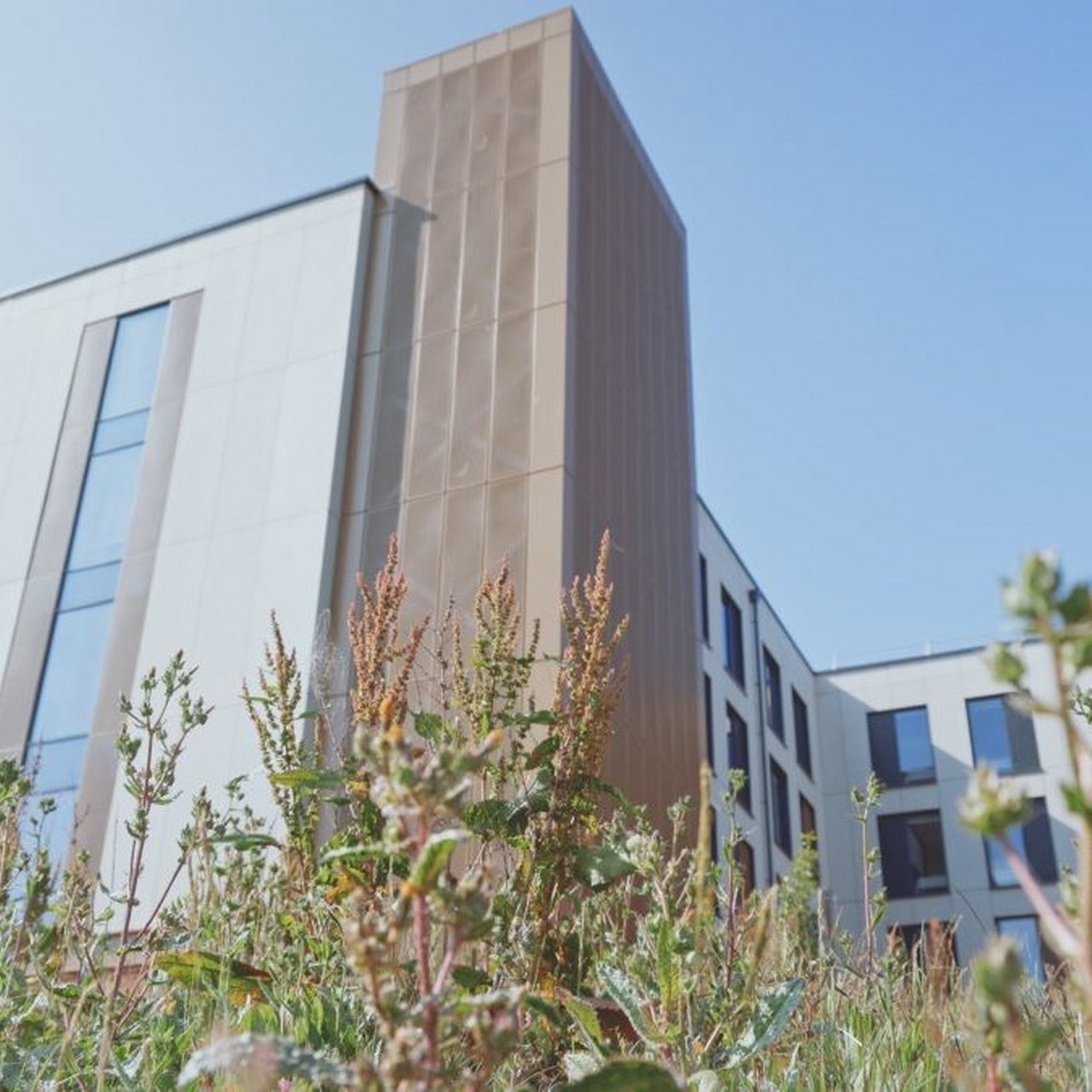
Building greener futures: how UPP is redefining student living
In the heart of Exeter, student living is taking on a different shape. It’s not just about bricks and mortar; it’s about biodiversity, carbon footprints and a vision for a more sustainable future. At the centre of this transformation is UPP, the UK’s leading provider of on-campus student accommodation.
A campus that gives back to nature
Developed by UPP, the University of Exeter’s new student accommodation is more than just a place to sleep and study; it’s an example of how construction can work with nature, not against it. From the outset, the project was designed with sustainability at its core: energy-efficient buildings, low-carbon materials and green spaces that support local wildlife.
But what really sets this project apart is its commitment to biodiversity. Under the UK’s new Biodiversity Net Gain regulation, developers are required to leave nature in a better state than they found it. UPP didn’t just meet this requirement – they exceeded it. Instead of focusing only on new developments, they’re working to improve biodiversity across their entire portfolio of student residences.
Think wildflower meadows, bird-friendly landscaping and green roofs that help manage rainwater and reduce urban heat. It’s a bold move – and one that’s already making a difference.
UPP has a broad environmental sustainability mission across the board. We focus on energy management, carbon reduction, and biodiversity net gain in what we like to think is a unique manner.
The power of partnership
Behind the scenes, Deutsche Bank has played a key role in bringing this vision to life. Through its Fixed Income & Currencies (FIC) Rates and ESG Solutions teams, the bank has provided UPP with a sustainability-linked loan where the interest rate is tied to the company’s performance on ESG KPIs.
In other words, the better UPP delivers on its sustainability goals, the better the terms of the loan. It’s a win-win: UPP is incentivised to continue developing sustainable assets and Deutsche Bank is able to support efforts to transition toward a sustainable society and economy.
We are delighted to have been able to provide UPP with this sustainability-linked loan. This transaction showcases Deutsche Bank’s presence in the market and growing footprint working with public institutions.
A bigger picture
UPP’s work in Exeter is just one chapter in a much larger story. Across the UK, the company is reimagining what student living can look like – combining comfort, community and climate-conscious design.
Their most recent Sustainability Report outlines a clear roadmap: 57 percent reduction in Scope 1 & 2 carbon emissions by 2030, a 50 percent reduction in embodied carbon by 2035 and a commitment to generating social value through local employment and inclusive design. They’re also investing in digital tools to monitor energy use and reduce waste and are working closely with universities to align their goals to help develop truly sustainable campus.
One of UPP’s ESG targets is focused on delivering on the UK’s new Biodiversity Net Gain (BNG) regulation, which is one of the first of its kind. UPP is exceeding BNG: instead of focusing purely on new housing developments, they intend to increase biodiversity across their entire portfolio.
What is Embodied Carbon?
Embodied carbon refers to the total amount of carbon dioxide (CO₂) emissions that are released before a building is even used. This includes:
- Extracting raw materials (like mining for metals or cutting down trees)
- Manufacturing building products (like making cement, steel, bricks, glass)
- Transporting materials to the construction site
- Construction activities (like using machinery and equipment)
So, it's all the carbon emissions tied to creating and assembling the building, not the energy used to run it afterward.
Why it matters
For many students, university is the first time living away from home. The spaces they inhabit during these years shape their habits, their values and their sense of what’s possible. By creating sustainable, inspiring environments, UPP is helping to embed climate-conscious thinking into everyday life – for today and tomorrow.
Sustainability from a university-wide context means taking meaningful action. The East Park development is a model of how developers and institutions can work together to make sustainability an integral part of the student experience.
And for cities like Exeter, these developments bring wider benefits: greener neighbourhoods, better air quality and a stronger connection between people and place.
In a world where the built environment accounts for nearly 40 percent of global carbon emissions, projects like this show that change is not only necessary; it’s achievable.
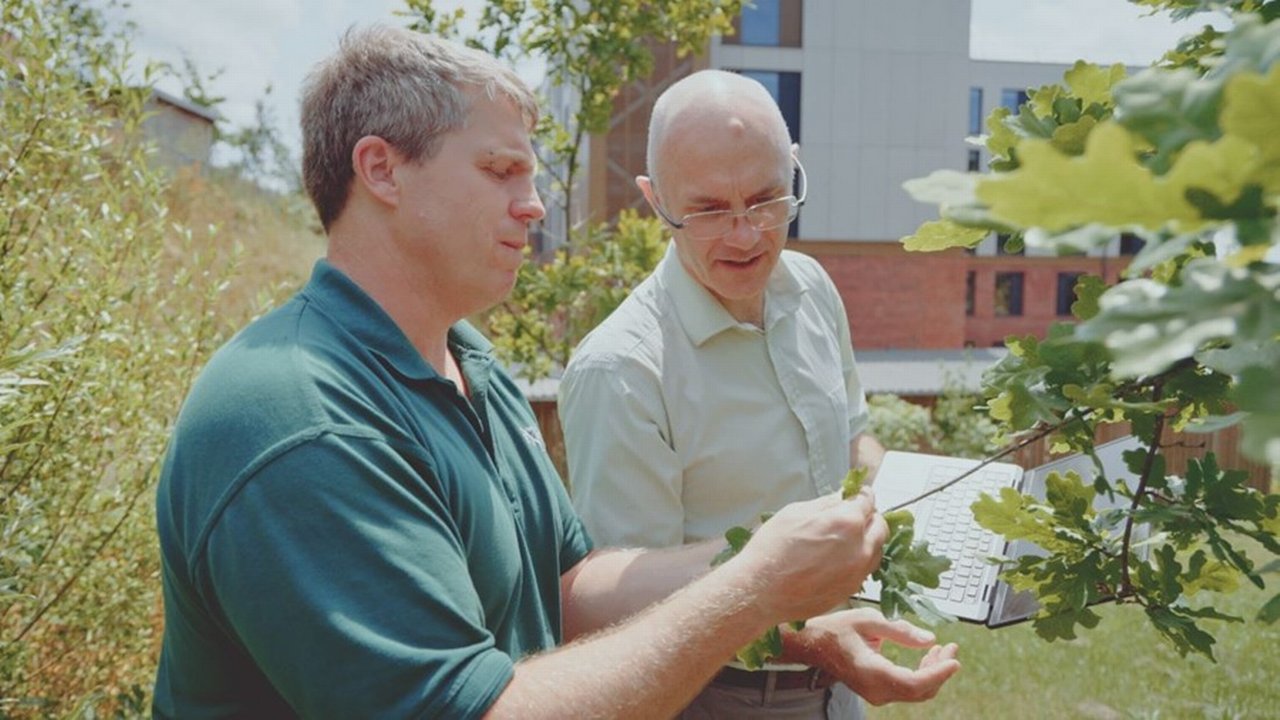
Looking ahead
As UPP continues to expand its sustainable campus model across the UK, Deutsche Bank remains a committed partner. The bank’s growing footprint in sustainable finance reflects a broader shift in how institutions think about their role in the climate transition.
It’s not just about funding – it's about shaping the future.
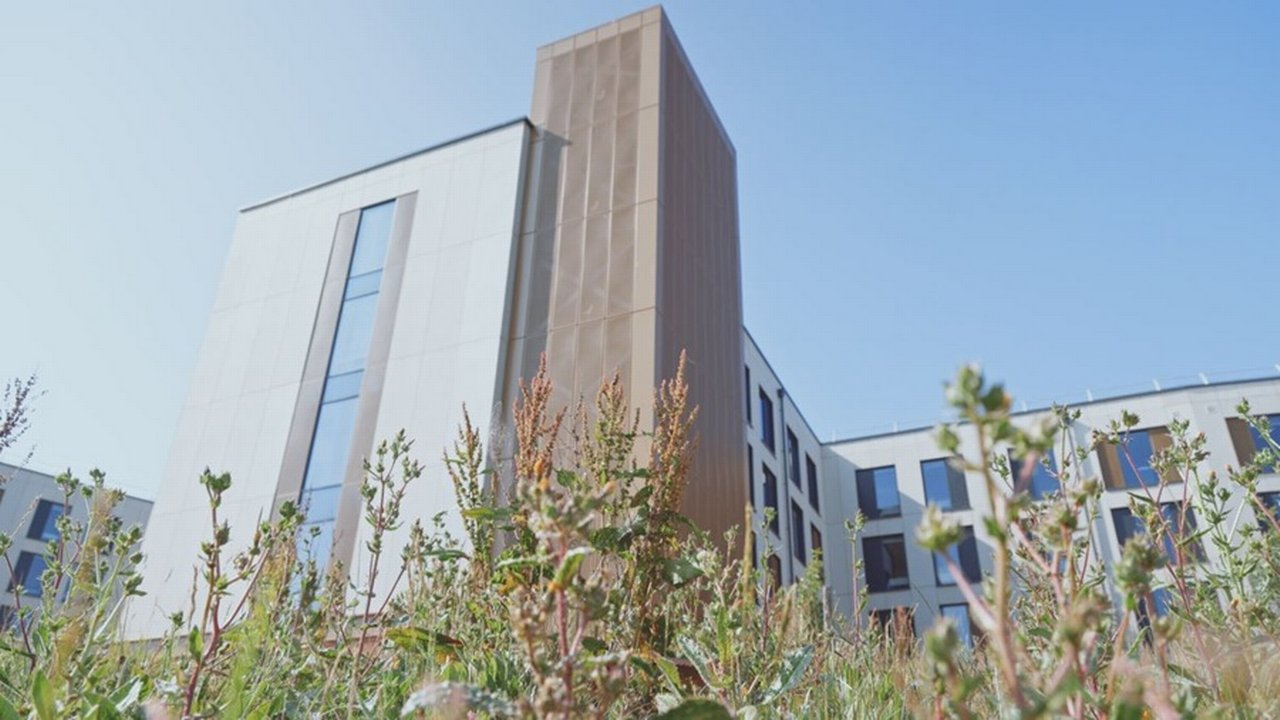
UPP and Deutsche Bank
In December 2024, UPP and Deutsche Bank announced a new sustainability-linked funding: the better UPP delivers on its sustainability goals, the better the terms of the loan. It’s a win-win: UPP is incentivised to continue developing sustainable assets and Deutsche Bank is able to support efforts to transition toward a sustainable society and economy.
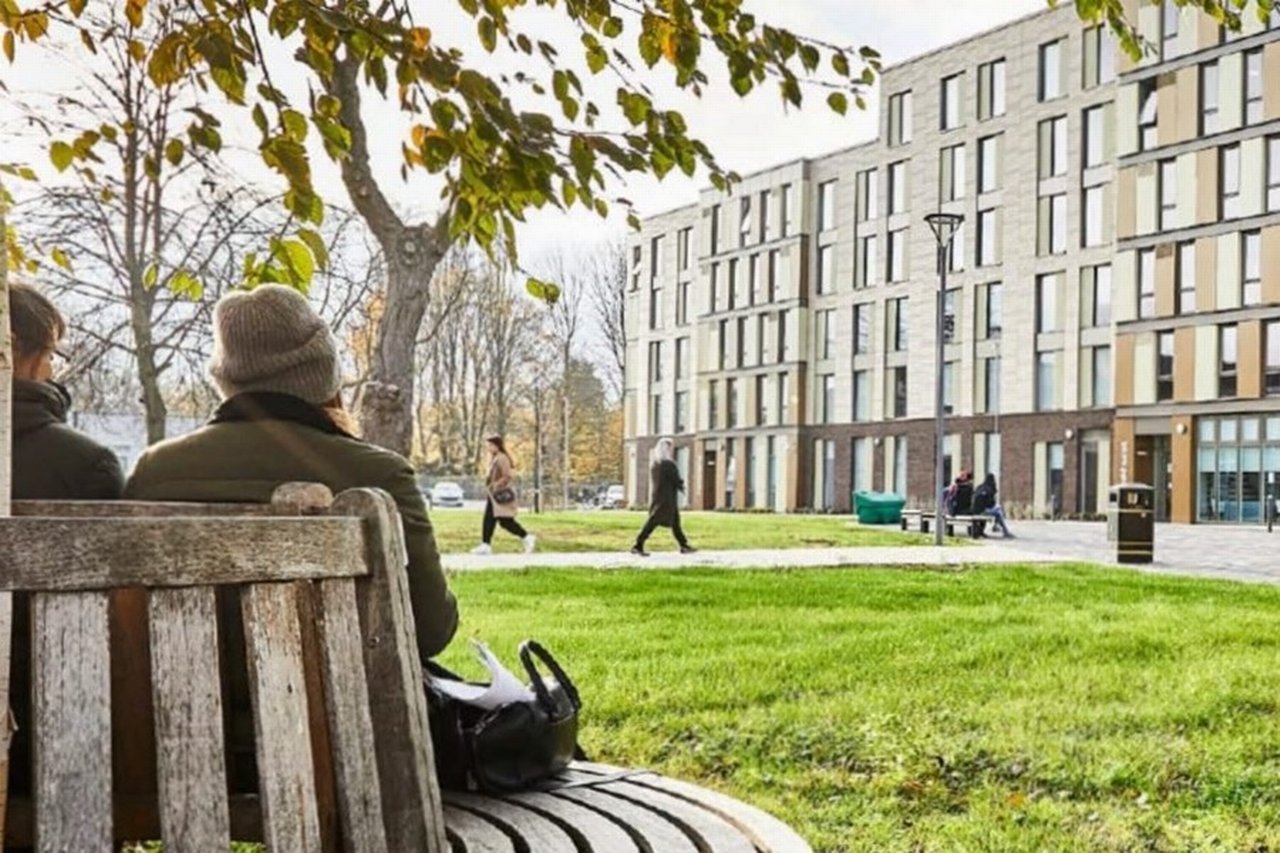
About UPP
UPP (University Partnerships Programme) was established in 1998 and is the UK’s only multi-discipline, full-service Design, Build, Fund and Operate (DBFO) company that is dedicated to the Higher Education sector. As such UPP has the longest established and most trusted reputation for delivering next generation campuses at scale.
This page was published in November 2025.

Sonja Dammann
… loves nature – but also big cities. There’s never a dull moment here, and it’s where changes and trends emerge quickly. She is particularly fascinated by how urban planning and conservation can work hand in hand – whether in her hometown of Frankfurt or anywhere else.
Recommended content
Responsible Growth | Crisp & Short
The pinnacle of green construction: the best from nature and lab The pinnacle of green construction: the best from nature and from the lab
In tomorrow's world, buildings could be made from things that are alive, intelligent and just different. New materials are changing how we think and live.
The pinnacle of green construction: the best from nature and lab Green and geniusResponsible Growth | Crisp & Short
Beyond beauty: buildings that work for the planet Beyond beauty: buildings that work for the planet
From power-generating lifts in Frankfurt to an unexpected oasis in London – discover how the bank is helping shape the future of building and working.
Beyond beauty: buildings that work for the planet More than just a facadeResponsible Growth | Quiz
Quiz: Still building or already amazed? Quiz: Still building or already amazed?
How future-proof is your knowledge about building for tomorrow? Test your know-how on the most exciting materials and find out if you’re already thinking ahead of the crowd.
Quiz: Still building or already amazed? Curious minds click here
